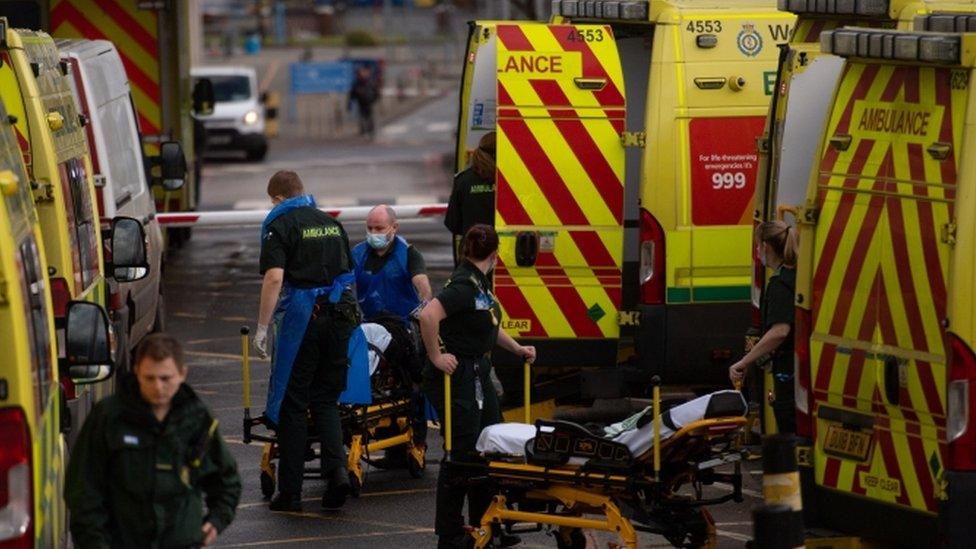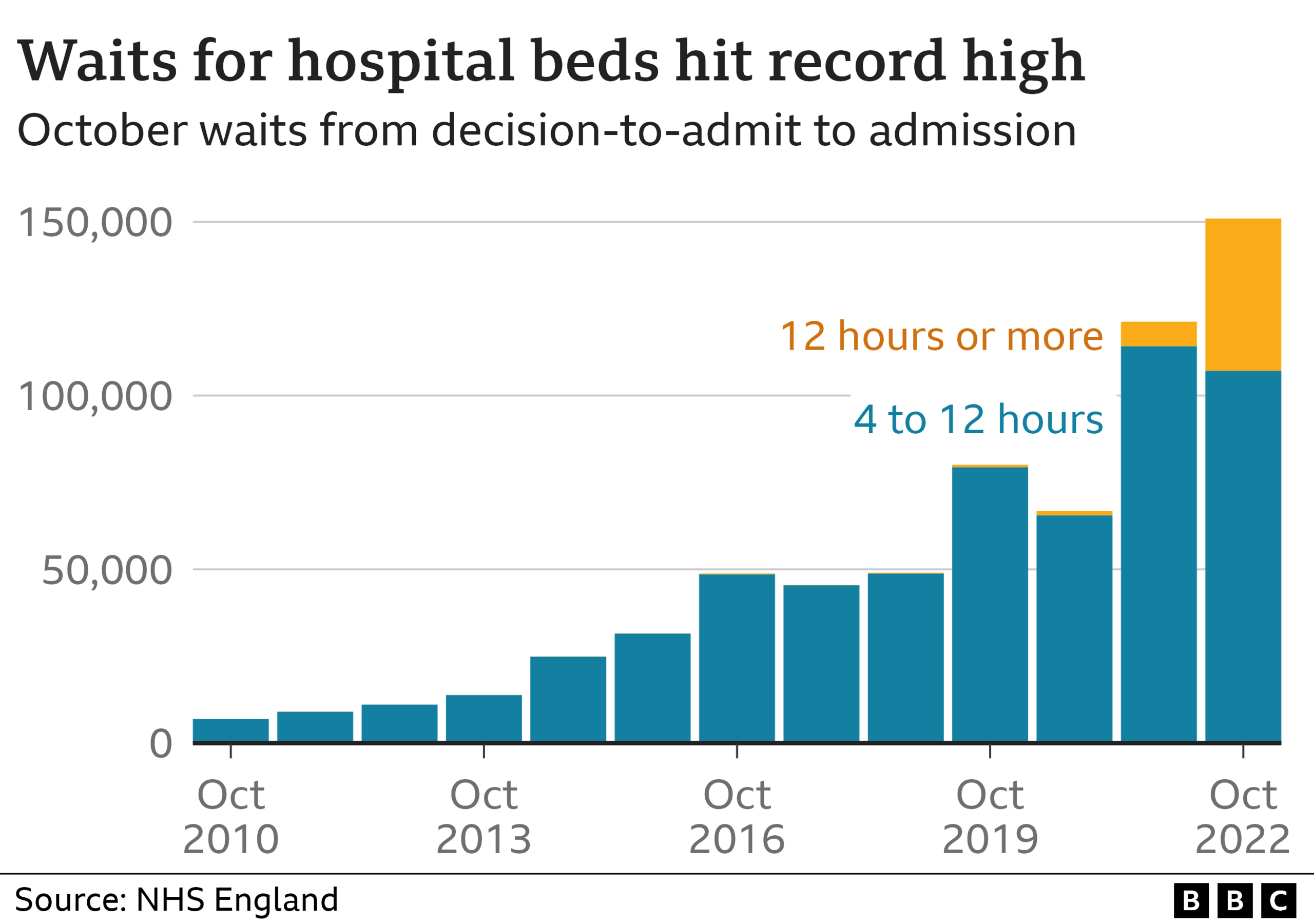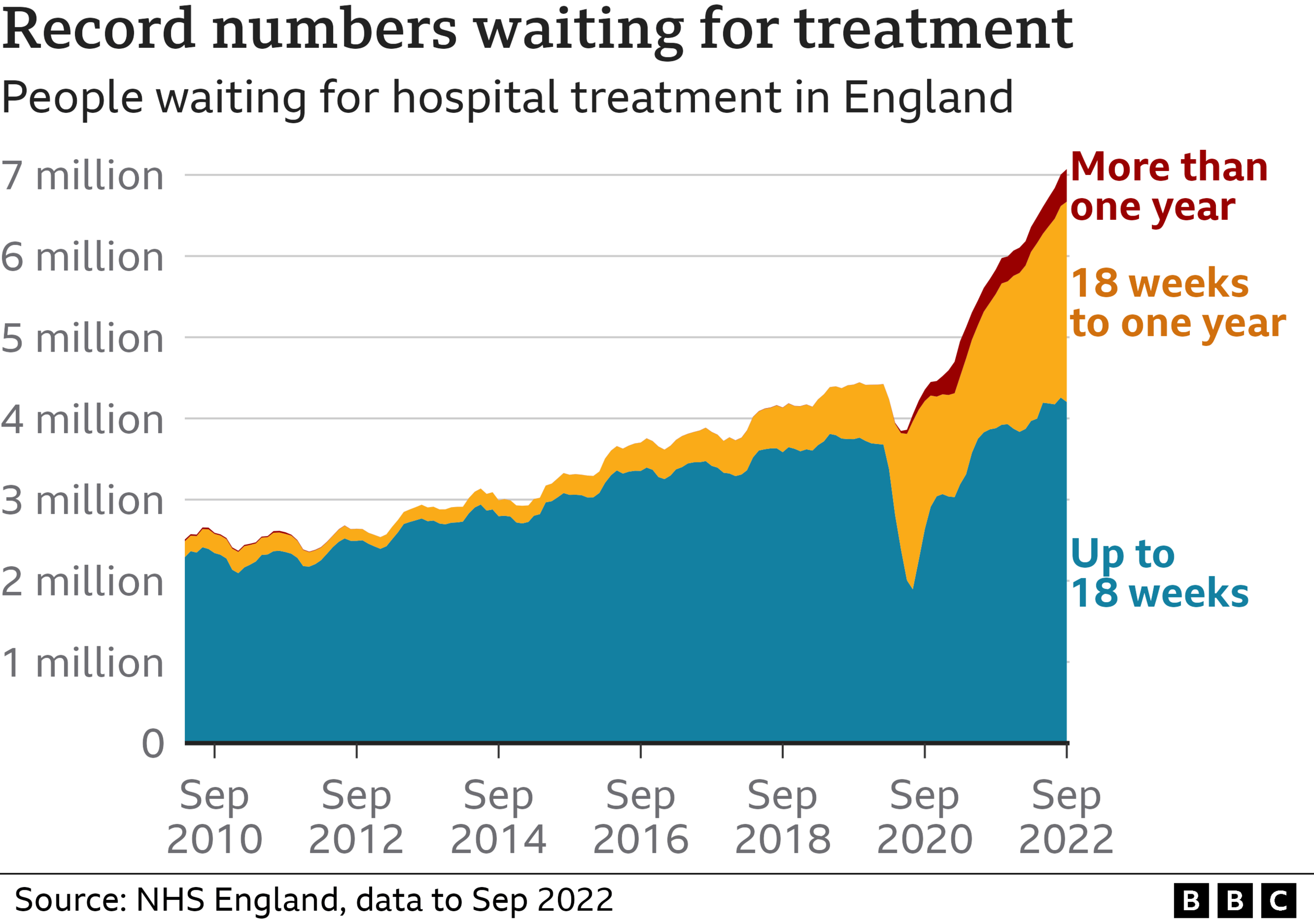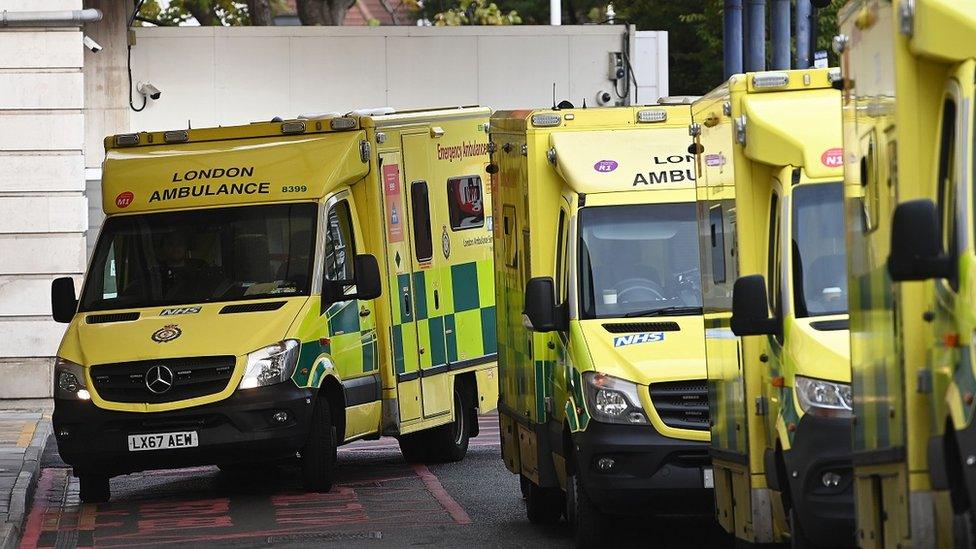Record numbers faced four-hour A&E waits in England in October
- Published

A record number of people had a long wait to be seen in A&E departments in October, NHS England figures show.
More than 550,000 patients were waiting more than four hours in major A&E units, up from 492,000 in September - the highest proportion on record.
The Society of Acute Medicine warned the situation was "unacceptably poor" and likely to deteriorate further.
The NHS said it faced the busiest October ever in A&E and for the most serious ambulance call-outs.
The latest monthly data from NHS England, external showed hospitals coming under increasing pressure ahead of the busy winter period.
The proportion of all patients in A&E and minor injury units being seen, discharged or admitted within four hours fell to 69% in October, down from 71% in September, and well below the 95% NHS target.
The number of the sickest patients having to wait a long time for a spare hospital bed also increased sharply.
Some 43,792 patients had to wait at least 12 hours in A&E after a decision to admit to a ward had been made, up 34% from 32,776 in September, and the highest number in records going back to August 2010.

The average response times for ambulances, external also rose again across much of the country.
Outside the capital, response times for a category two emergency, such as a stroke or suspected heart attack, rose in almost every English region.
In the West Midlands, the average time to reach those patients increased to one hour, eight minutes in October, up from 45 minutes in September, and well above the 18-minute target set out in the NHS constitution.
Data from the London Ambulance Service was not available for October.
The most recent weekly data from Scottish hospitals also showed record numbers of patients having to wait in A&E before being treated, admitted or discharged.
Dr Tim Cooksley, president of the Society for Acute Medicine, said all parts of the NHS were "unquestionably struggling".
"This latest set of performance data show that standards are at an unacceptably poor level for both patients and staff, with an expectation that this will deteriorate further over the winter months," he said.
"Pressures are at unsustainable levels and the results are scant justice for acute care staff who continue to strive to deliver a reasonable quality of care. Morale for patients and staff is low with little expectation of short-term improvement."
Prof Sir Stephen Powis, NHS England's medical director, said: "There is no doubt October has been a challenging month for staff who are now facing a tripledemic of Covid, flu and record pressure on emergency services with more people attending A&E or requiring the most urgent ambulance call-out than any other October.
"Pressure on emergency services remains high as a result of more than 13,000 beds taken up each day by people who no longer need to be in hospital."

Separate data showed the number of people in England on a waiting list to start routine treatment, external, such as a knee replacement or cataract surgery, has also risen to a new record high.
A total of 7.1 million people were waiting to start treatment at the end of September, NHS England said.
That is up from seven million at the end of August and is the highest number since records began in August 2007.
A total of 401,537 people had been waiting more than 52 weeks to start their treatment, up from 387,257 in August.
The government and NHS England have set a target to eliminate all waits of more than a year by March 2025.
Very long waits of more than two years have fallen slightly, while the number of people waiting 18 months for treatment has dropped by almost 60% in one year, NHS England said.

Have you recently been to A&E? Share your experiences by emailing haveyoursay@bbc.co.uk, external.
Please include a contact number if you are willing to speak to a BBC journalist. You can also get in touch in the following ways:
WhatsApp: +44 7756 165803
Tweet: @BBC_HaveYourSay, external
Please read our terms & conditions and privacy policy
If you are reading this page and can't see the form you will need to visit the mobile version of the BBC website to submit your question or comment or you can email us at HaveYourSay@bbc.co.uk, external. Please include your name, age and location with any submission.
- Published21 October 2022

- Published10 November 2022
